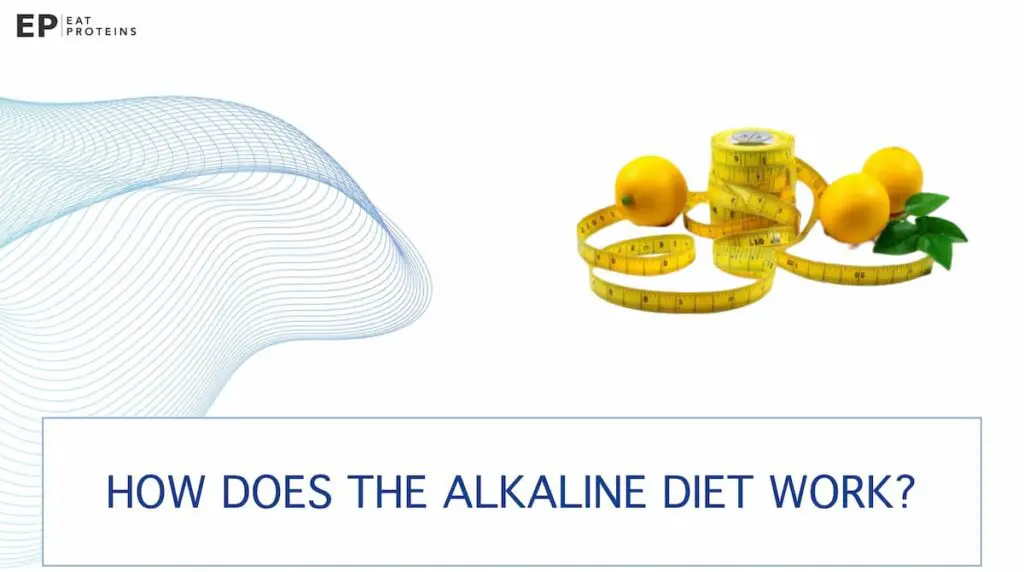
Alkaline Diet: A Beginner’s Guide and Meal Plan
The alkaline diet, also known as the pH diet, is a dietary approach that focuses on consuming foods that are alkaline in nature, with the aim of maintaining a more alkaline pH in the body. This diet emphasizes an intake of alkaline foods, such as fruits, vegetables, and whole grains, while limiting the consumption of acidic foods like meat, dairy, and processed foods.
The goal is to achieve a pH balance in the body that is slightly more alkaline, with a target range of 7.35 to 7.45. However, according to a 2012 study by Gerry K. Schwalfenberg from the University of Alberta, the body’s pH is tightly regulated and does not significantly change with dietary changes. While the alkaline diet may promote the consumption of nutritious foods, there is currently limited scientific evidence supporting the specific health benefits claimed by proponents of the diet.
Table of Contents
The Alkaline diet, also known as the alkaline ash or acid alkaline diet, is based on the notion that certain foods can affect the pH balance of your body. Despite its popularity, particularly in alternative medicine circles, there is no scientific evidence to support the claim that Dr. Sebi’s Alkaline diet can treat or prevent diseases like cancer.
Your body naturally maintains its blood pH levels between 7.35 and 7.45, and this diet’s premise that it can significantly alter blood pH is not supported by research. Be cautious as following this diet can result in a less balanced intake, potentially leading to nutrient deficiencies.

The Alkaline diet works by focusing on foods that are alkaline-forming in the body, aiming to increase your body’s pH level above the neutral level of 7.
You are advised to consume fruits and vegetables, which are alkalizing, and to limit acidic foods like meat, eggs, and grains that contribute to low-grade metabolic acidosis. The goal is to neutralize or store the remaining acid within the body, thereby potentially preserving bone and muscle mass.
An alkaline diet for detoxification focuses on consuming foods that produce alkaline ash, such as fresh fruits and leafy greens while limiting acidic foods like animal protein and cereals. Detoxification, in this context, refers to the body’s natural process of eliminating or neutralizing toxins through the liver, kidneys, and other organs.
According to a 2017 study by Caroline Passey from Portsmouth Hospitals NHS Trust, reducing the acid load through a low-protein diet with a focus on vegetable proteins and increased fruit and vegetable intake can slow the progression of chronic kidney disease. The study found that an Alkaline diet led to a significant increase in serum bicarbonate levels and was generally preferable for patients, showing promising results for renal function.
The alkaline diet aims to adjust your body’s pH levels to become more alkaline, specifically targeting a more effective excretion of toxins within the kidney’s proximal tubules. By consuming a high vegetable diet and supplementing with alkalizing compounds like potassium citrate, you could shift your body’s alkaline reserves.
However, there is limited evidence to support the idea that the Alkaline diet significantly affects body pH levels. A 2016 study by Tanis R. Fenton from the University of Calgary has shown that changes in diet can only raise urine pH by approximately 1.02 units, indicating a minimal impact on overall body pH levels.
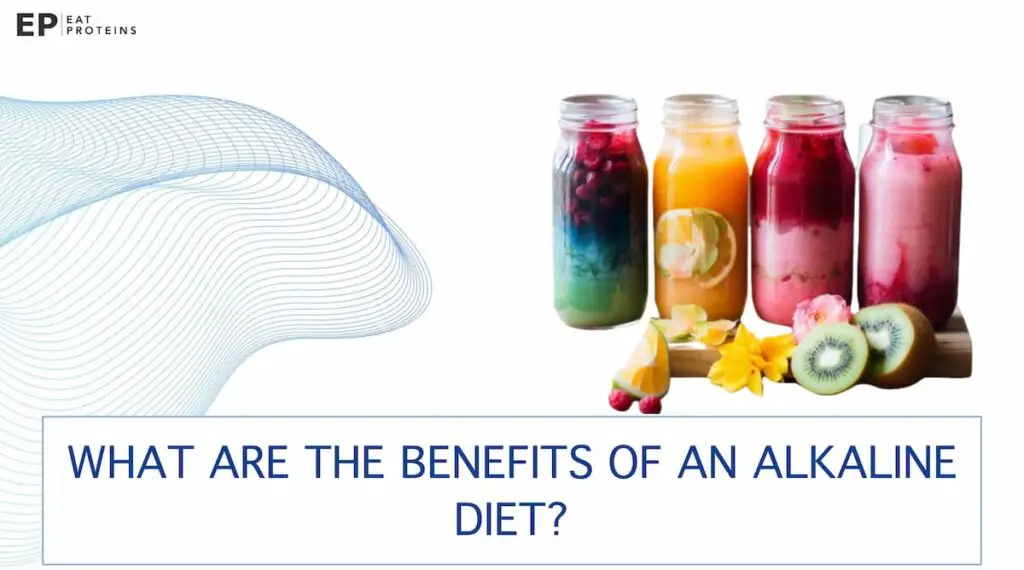
The seven benefits of an alkaline diet include promoting overall health and well-being, reducing inflammation in the body, improving digestion and nutrient absorption, supporting a healthy immune system, enhancing bone health, reducing the risk of chronic diseases like heart disease and diabetes, and aiding in weight loss.
There is limited scientific evidence supporting the effectiveness of an alkaline diet for weight loss, as per a 2012 study published in the Journal of Environmental and Public Health. While an alkaline diet may have potential health benefits, weight loss is a complex process that is influenced by various factors including calorie intake, exercise, and overall dietary patterns.
Further research is needed to fully understand the specific impact of an alkaline diet on weight loss outcomes. It is recommended to consult with a healthcare professional or registered dietitian for personalized guidance on achieving weight loss goals.
The potential side effects of an alkaline diet are not well-established in scientific literature. However, some possible side effects may include nutrient deficiencies, particularly in essential fats and proteins. Additionally, excessive alkalinity in the body may disrupt the natural pH balance, which could affect the normal functioning of certain organs and systems.
To start an Alkaline diet, focus on consuming alkaline foods such as fruits, vegetables, nuts, and seeds, while minimizing acidic foods like processed meats, refined sugars, and artificial additives. The following list outlines the steps to start an Alkaline diet.
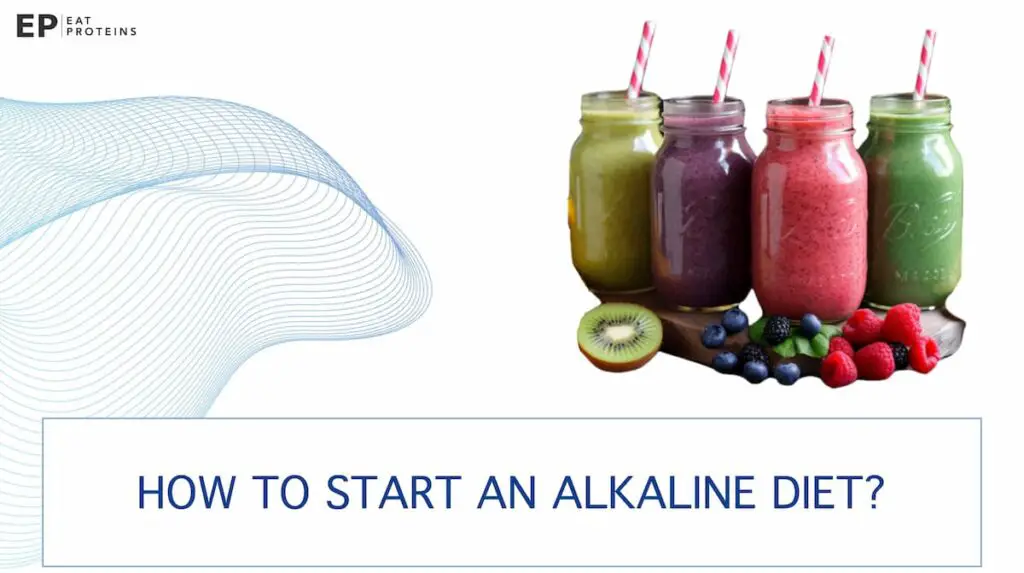

A sample meal plan for an alkaline diet focuses on incorporating alkaline-promoting foods like fruits, vegetables, and plant-based proteins while minimizing acidic foods such as processed meats and sugary beverages. The plan includes a variety of different meals for breakfast, lunch, and dinner over a 7-day period to maintain interest and nutritional balance.
Here’s a 7-day sample meal plan for an alkaline diet:
It’s important to note that while the diet promotes the exclusion of meats, dairy, and grains, medications are more reliable for altering urine pH, debunking the diet’s original “acid-ash” hypothesis related to osteoporosis.
This alkaline diet food chart categorizes foods according to their acidity levels, as per the alkaline diet.
In an alkaline diet, beverages with a pH level above 7 are recommended, such as alkaline water, which often contains essential minerals like calcium, potassium, and magnesium. Herbal teas and fresh vegetable juices are also favored for their antioxidant properties, which help neutralize free radicals in the body.
For those looking to limit sugar and caloric intake, cucumber-infused water and lemon water are excellent options that are low in calories and sugar. When choosing beverages, opt for those packaged in glass bottles to avoid the potential leaching of chemicals from plastic, and consider the brand and price for quality assurance.
In an alkaline diet, multimineral supplements play a crucial role in regulating acid-base balance by significantly increasing both blood and urinary pH levels, as evidenced by a 2009 study by Daniel König. The study found that alkaline supplement intake led to a significant increase in both blood and urinary pH, indicating its efficacy in promoting alkalinity. Factors to consider when choosing such supplements include mineral content for electrolyte balance, dosage, form (such as powder, pill, or liquid), and additional features like being vegan-friendly or gluten-free.
Alkaline diet pills are supplements designed to help regulate the body’s acid-base balance by providing alkaline-forming minerals like calcium, potassium, and magnesium. These pills aim to neutralize excess acidity in the body and support an alkaline environment, which is the central premise of the alkaline diet.
The best alkaline diet book for beginners, according to the information provided, is “The Dr. Sebi Alkaline Diet Cookbook” by Nauger Loaney, published in August 2020. This book offers a comprehensive guide to the Doctor Sebi Diet, an alkaline plant-based diet, and includes valuable insights along with 250 recipes covering various meal categories.
It serves as a resourceful guide for anyone looking to understand the benefits, rules, and nutritional guidelines of the alkaline diet, making it ideal for those new to this eating approach.
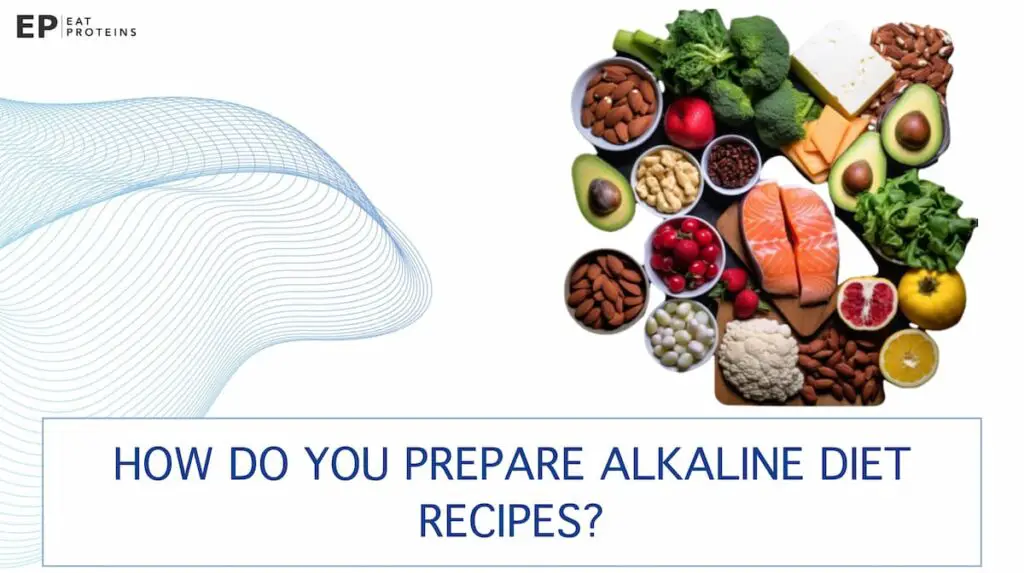
Here are 5 practical tips on how to prepare Alkaline Diet recipes.
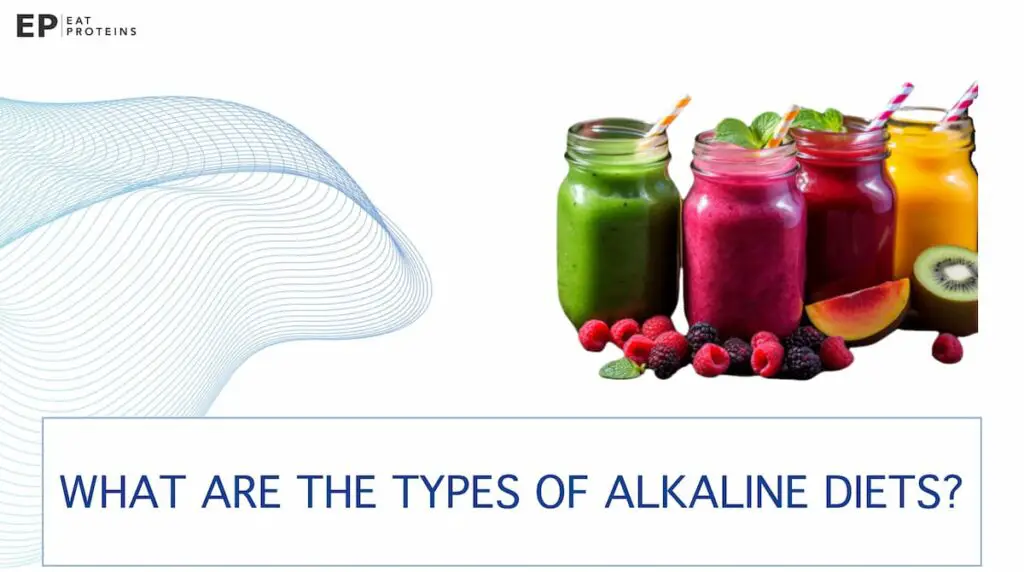
The types of Alkaline diets refer to various dietary approaches that aim to increase the alkalinity in the body by emphasizing the consumption of alkaline-forming foods and minimizing acidic foods. Each type has its own set of guidelines and focus, ranging from plant-based and vegan options to more specific plans like a 21-day reset or incorporating ketogenic principles.
The following list outlines seven main types of Alkaline diets.
The Vegan Alkaline Diet fuses the ideals of both veganism and alkaline dietary principles to boost overall well-being. By eliminating all animal-based foods, the focus shifts towards a plant-based menu rich in fruits, vegetables, legumes, and nuts. The goal is to create an alkaline environment in the body while steering clear of acidic elements like grains and processed foods.
Building upon the Vegan Alkaline Diet, the Alkaline Plant-Based Diet puts an even greater emphasis on consuming whole, unprocessed plant foods. The objective is not just to alkalize the body but also to achieve the pinnacle of nutritional intake through natural, plant-based sources. Unlike its vegan alkaline predecessor, this diet specifically discourages even plant-based processed foods.
The Dr. Sebi Alkaline Diet takes a unique turn by incorporating specific herbs and natural supplements to achieve an alkaline state. Founded by Dr. Sebi, this diet aims to detoxify the body, encouraging an alkaline environment from within. The distinct feature here is the incorporation of specialized herbs and natural supplements not commonly found in other alkaline diets.
Merging the fat-burning principles of the ketogenic diet with the pH-balancing goals of an alkaline diet, the Alkaline Keto Diet serves a dual purpose. It not only aims for ketosis but also for maintaining an alkaline state in the body. As a result, the diet includes high-fat, moderate-protein, and low-carb foods that are alkaline-forming, while avoiding acidic, high-carb options.
The Alkaline-Acid Diet sets itself apart by focusing on a balanced intake of both alkaline and acidic foods. Rather than strictly adhering to alkaline-forming foods, this diet allows for a moderate inclusion of acidic foods. This approach aims for a more balanced pH level in the body, offering a less restrictive alternative to other alkaline diets.
Integrating the principles of raw foodism with alkalinity, the Raw Alkaline Diet seeks to offer maximum nutritional benefits. The focus here is on consuming raw fruits, vegetables, and nuts to maintain an alkaline body pH. Unlike other alkaline diets that permit cooked foods, this diet recommends a strictly raw and unprocessed food intake.
For those seeking a shorter-term commitment, the 21-Day Alkaline Diet offers a time-bound approach to alkalizing the body. This diet, lasting for exactly three weeks, aims for a quick reset of the body’s pH levels and an overall detoxification. It’s an ideal choice for individuals who want to experience the effects of an alkaline diet without a long-term commitment.
The scientific facts about the alkaline diet are, according to The British Dietetic Association, that it is based on a misconception that different foods can affect the pH balance of the body, and there is no evidence to support its claims of treating or preventing diseases by changing the body’s acidity levels.
The Alkaline diet has been labeled as one of the “top 5 worst celeb diets to avoid” and the proposed mechanism of changing blood acidity has been debunked by the American Institute for Cancer Research.
The Alkaline Diet is not well-supported by scientific research. American Institute for Cancer Research has shown that the body is capable of maintaining its pH levels without dietary influence, making it unlikely that the alkaline diet can significantly impact the body’s pH balance. Furthermore, well-designed clinical trials are lacking to verify the claims made about the alkaline diet and its supposed benefits against cancer or other health conditions.
The alkaline diet’s claims that it can “kill” cancer cells, significantly change the body’s pH, and that urine and saliva pH strips are effective measures of body pH have been debunked by scientific research.
The alkaline diet is generally not viewed favorably by medical professionals as there is limited scientific evidence to support its claims and it may lead to an imbalanced diet. Medical professionals advise a balanced and varied diet to promote overall health and lower the risk of diseases like cancer.
Yes, the alkaline diet can be considered a healthy diet if it encourages increased consumption of fruits and vegetables, but its claims about altering body pH to treat diseases are not scientifically substantiated.
The Mayo Clinic states that while some studies suggest that an Alkaline Diet may slow bone loss, it is not necessarily better than a healthy diet. They also mention that there is no strong evidence to support claims that an alkaline diet prevents or treats cancer.
The alkaline diet focuses on consuming alkaline-forming foods to balance the body’s pH levels, whereas the Mayo Clinic diet emphasizes a balanced eating plan that includes all food groups for overall health and weight management. While the alkaline diet restricts certain food groups like dairy and meat, claiming they cause acidity, the Mayo Clinic diet allows for a more varied intake, including lean proteins and low-fat dairy.
The alkaline diet and vegan diet both emphasize plant-based foods, but for different reasons: the alkaline diet aims to balance the body’s pH levels, while the vegan diet avoids all animal products for ethical, environmental, or health reasons.
While both diets encourage the consumption of fruits and vegetables, the alkaline diet restricts certain plant foods considered to be acidic, which are generally permissible in a vegan diet. Despite their plant-based focus, the vegan diet is more flexible in food choices, allowing for a broader range of grains, legumes, and nuts, whereas the alkaline diet limits these based on their pH levels.
You can find an alkaline diet plan in PDF format on various health and wellness websites that specialize in dietary guides, as well as through online marketplaces that sell e-books. It’s essential to ensure that the source is reputable and ideally backed by certified nutritionists or healthcare providers.